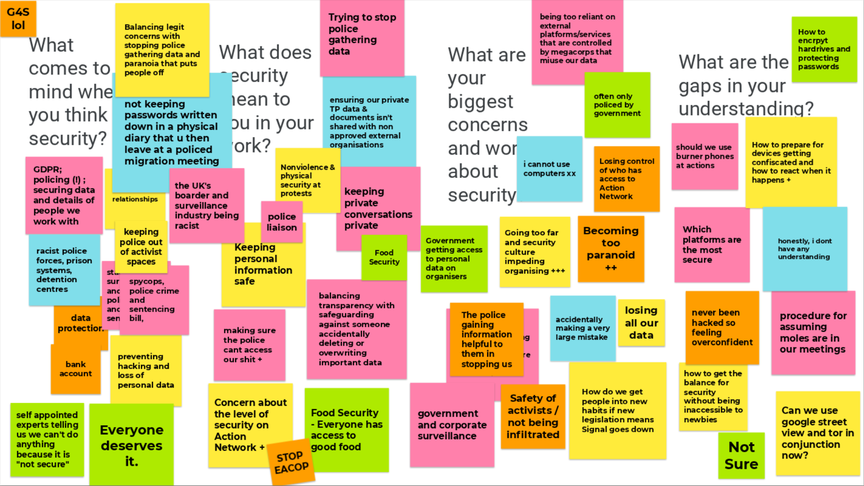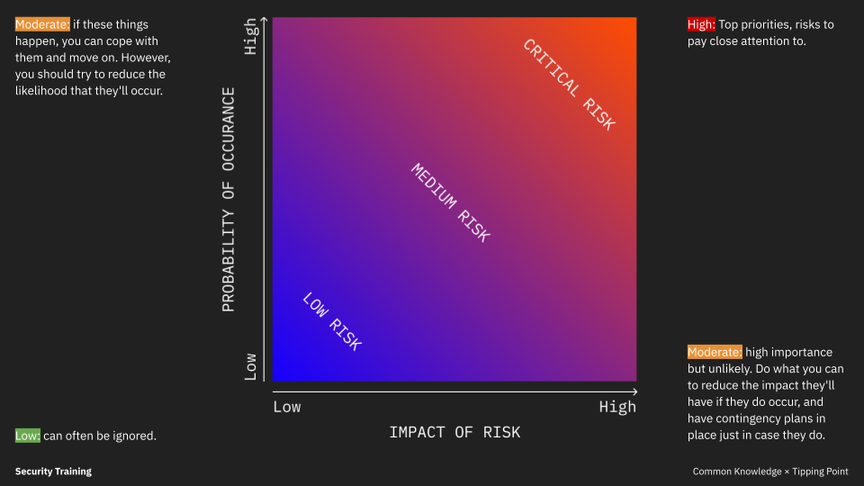Digital Security Training

Talk to us about security training and advice: securitytraining@commonknowledge.coop
Background
The British capitalist state has systematically increased repression of political movements in recent years, posing a new level of risk for what was previously understood as a 'right to protest.'
Even attendees of a local demo now voice fear over potential repercussions, as the mainstream political parties grant new legal powers, more resources and political direction given to the police, and mass digital surveillance by the state and private companies rapidly develops.
[A research report by Amnesty International] lays bare a continent-wide pattern of repressive laws, use of unnecessary or excessive force, arbitrary arrests and prosecutions, unwarranted or discriminatory restrictions as well as the increasing use of invasive surveillance technology, resulting in a systematic roll back of the right to protest.

What we did
We ran a weekly two-hour Zoom sessions over a year with intersectional climate activists from Tipping Point UK's networks. The workshops covered:
- The theoretical, political and organisational challenge of security, inspired by the holistic security framework
- Exploring and practicing the Threat Modelling process
- Digital security best practices and basics
- An open discussion forum
Each call had between 10 and 30 attendees at different times of the day and week, and the session format evolved over time as we identified recurring themes and security advice has become more nuanced.

What next?
Many questions of political security are a balance between theoretical capabilities and practical limitations of threat actors. However, there is a lack of popular understanding of:
- Our legal rights to political protest and direct action
- The capabilities and priorities of local and national police departments and private security
- Security protocols and threat models for specific tactics and strategies
Some of these gaps could be addressed in collaboration with organisations like the Green & Black Cross , SCALP , Stop-Watch , Statewatch , Netpol , Big Brother Watch , Corporate Watch , the Movement Research Unit , Tactical Tech , Access Now and Amnesty International UK .
It's imperative that our movements are able to maintain their security while they carry out their critical tasks , whether pushing for action to defend against the climate crisis, or inspiring popular mobilisations against Israel's genocidal campaign against the Palestinian people in Gaza and the West Bank, or organising workers and tenants to fight back against their unjustified rulers and their henchmen.